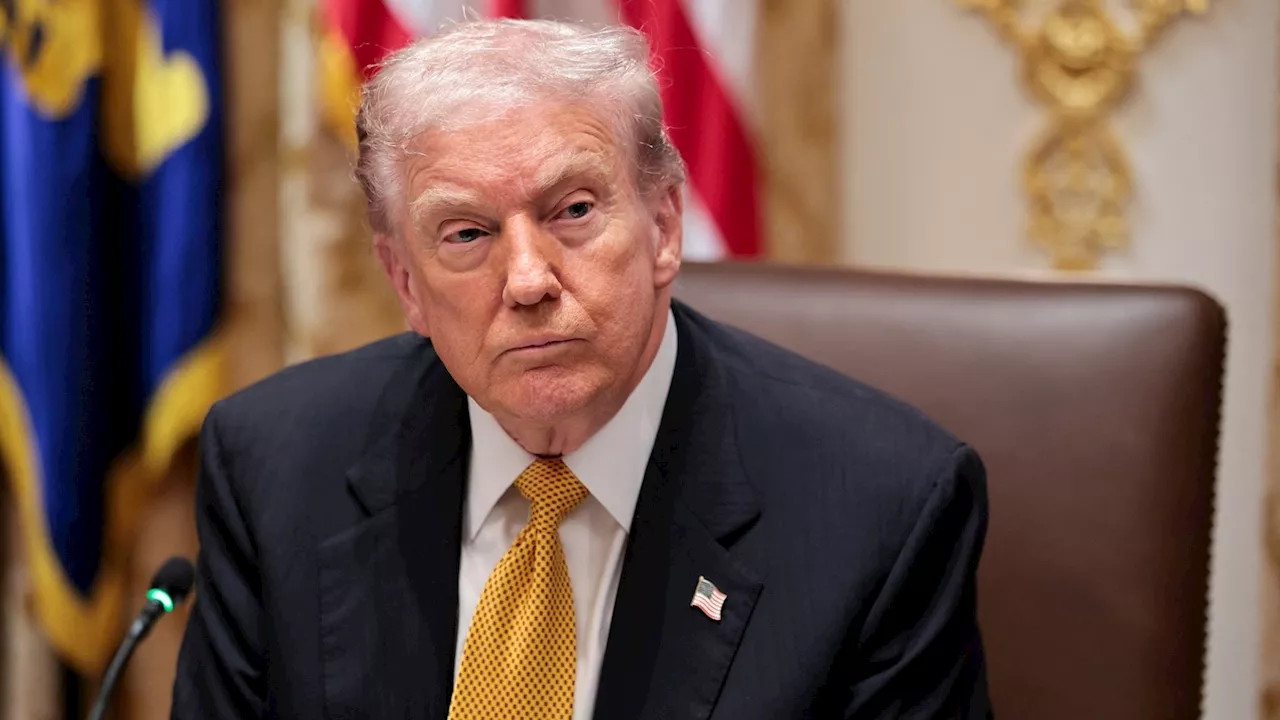Business
Trump Administration Appeals Court Order to Fully Fund SNAP Benefits

A recent legal battle has emerged as the Trump administration appeals a federal court ruling that mandates full funding for the Supplemental Nutrition Assistance Program (SNAP) for November. The administration contends that complying with the court’s order would result in greater harm to the government than the potential suffering of millions of low-income Americans who rely on food assistance.
The situation escalated following a ruling by Rhode Island federal judge John J. McConnell Jr., who ordered the U.S. Department of Agriculture (USDA) to utilize existing funds to ensure that SNAP benefits are fully distributed. In response, the administration filed a 40-page appeal with the 1st Circuit Court of Appeals, arguing that the judge’s directive undermines the separation of powers by compelling the executive branch to allocate funds without congressional approval.
The Justice Department’s appeal asserts that the “district court’s order threatens significant and irreparable harm to the government which outweighs any claimed injury to plaintiffs.” In essence, the administration argues that the financial implications of complying with the court’s order are more detrimental than the impact on the estimated 42 million Americans who depend on SNAP for their monthly grocery needs.
This legal dispute arises during an ongoing government shutdown, which has led the USDA to propose partial funding for SNAP. Cities, religious organizations, and nonprofits have responded with lawsuits, claiming the government is neglecting its legal obligation to provide full benefits. Judge McConnell has ruled in favor of these claims twice, directing the government to tap into existing federal accounts to cover the shortfall.
The Justice Department’s emergency filing includes claims that Judge McConnell’s injunction “makes a mockery of the separation of powers” and lacks a lawful basis. It further suggests that the judiciary’s enforcement of SNAP funding complicates ongoing negotiations related to the government shutdown, implying that judicial actions exacerbate fiscal standoffs.
What sets this appeal apart is not only its legal arguments but also the underlying value judgment it presents. Typically, courts weigh the potential damages of maintaining a challenged policy versus allowing it to take effect. In this case, the administration’s refusal to fully fund SNAP, despite having adequate reserves, raises significant ethical questions.
The Justice Department argues that the “irreparable harm” lies in obeying the court’s order to spend money, suggesting that the government’s discomfort in complying is more critical than the hunger faced by millions of families, seniors, and children. This reflects a pattern where the administration equates its preferences with the public interest, asserting that the government suffers more from fulfilling its statutory obligations than from allowing widespread hunger.
Critically, the USDA has acknowledged that it manages multiple accounts that contain sufficient funds to sustain SNAP, including a $5 billion emergency reserve created by Congress. This raises questions about the administration’s claims of fiscal incapacity, suggesting that the decision to withhold funds is more about political choice than financial necessity.
If the Justice Department’s argument prevails, the implications could extend beyond SNAP. It would set a precedent suggesting that the executive branch could claim “irreparable harm” to avoid fulfilling statutory duties whenever it prefers not to act. This would signal a troubling shift in the balance of powers, prioritizing administrative convenience over the welfare of vulnerable populations.
Judge McConnell has expressed strong sentiments on this issue, stating, “This should never happen in America,” referring to a scenario where the government allows its citizens to go hungry while claiming a lack of resources amidst existing reserves.
As this legal battle unfolds, the stakes remain high, not only for the Trump administration but also for millions of Americans who rely on SNAP during challenging economic times. The outcome could redefine the relationship between government obligations and executive authority in the context of social safety nets.
-

 Science3 weeks ago
Science3 weeks agoIROS 2025 to Showcase Cutting-Edge Robotics Innovations in China
-

 Politics3 weeks ago
Politics3 weeks agoJudge Considers Dismissal of Chelsea Housing Case Citing AI Flaws
-

 Lifestyle4 weeks ago
Lifestyle4 weeks agoStone Island’s Logo Worn by Extremists Sparks Brand Dilemma
-

 World4 weeks ago
World4 weeks agoBravo Company Veterans Honored with Bronze Medals After 56 Years
-

 Health3 weeks ago
Health3 weeks agoStartup Liberate Bio Secures $31 Million for Next-Gen Therapies
-

 Science4 weeks ago
Science4 weeks agoArizona State University Transforms Programming Education Approach
-

 Health4 weeks ago
Health4 weeks agoTop Hyaluronic Acid Serums for Radiant Skin in 2025
-

 Top Stories4 weeks ago
Top Stories4 weeks agoIndonesia Suspends 27,000 Bank Accounts in Online Gambling Crackdown
-

 Sports4 weeks ago
Sports4 weeks agoMel Kiper Jr. Reveals Top 25 Prospects for 2026 NFL Draft
-

 Lifestyle4 weeks ago
Lifestyle4 weeks agoMary Morgan Jackson Crowned Little Miss National Peanut Festival 2025
-

 World4 weeks ago
World4 weeks agoHoneywell Predicts Record Demand for Business Jets Over Next Decade
-

 Sports4 weeks ago
Sports4 weeks agoYamamoto’s Mastery Leads Dodgers to 5-1 Victory in NLCS Game 2









